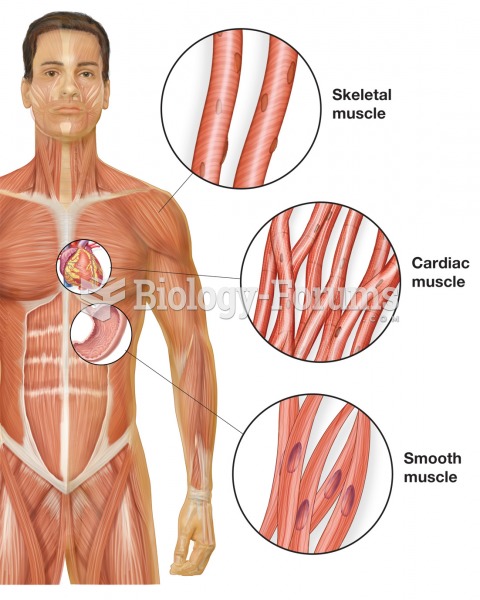|
|
|
The National Institutes of Health have supported research into acupuncture. This has shown that acupuncture significantly reduced pain associated with osteoarthritis of the knee, when used as a complement to conventional therapies.
Cytomegalovirus affects nearly the same amount of newborns every year as Down syndrome.
People with high total cholesterol have about two times the risk for heart disease as people with ideal levels.
According to the FDA, adverse drug events harmed or killed approximately 1,200,000 people in the United States in the year 2015.
In women, pharmacodynamic differences include increased sensitivity to (and increased effectiveness of) beta-blockers, opioids, selective serotonin reuptake inhibitors, and typical antipsychotics.







